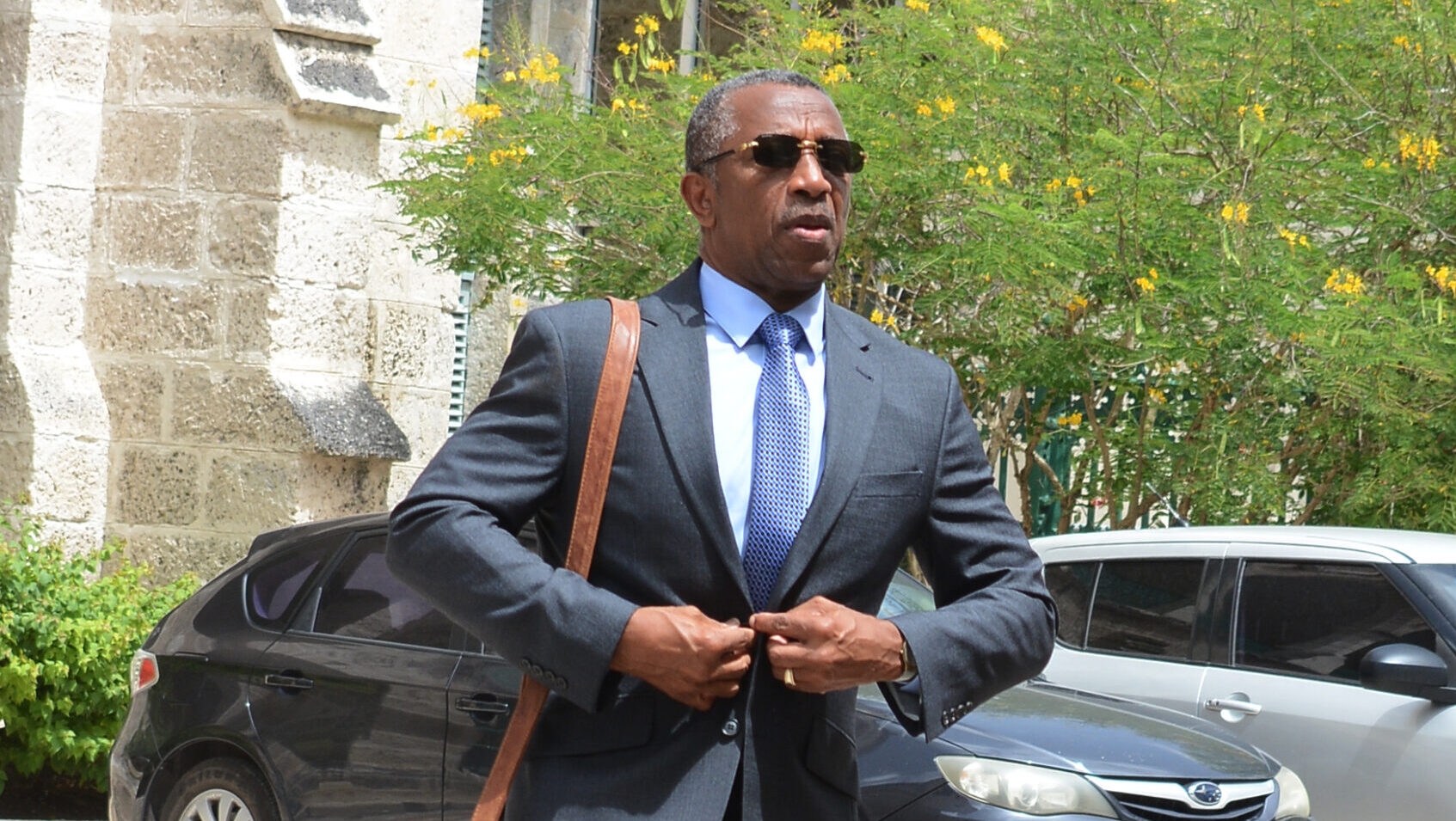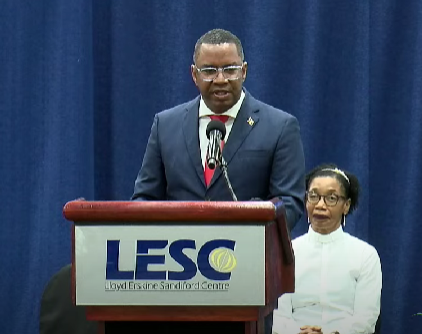Opposition Leader Criticizes Constitutional Reform Commission's Recommendations

January 14, 2025
Opposition Leader Ralph Thorne criticizes the Constitutional Reform Commission's recommendations as cosmetic revisions lacking transformative change. He pledges vigorous opposition and emphasizes the need for meaningful public input.
Opposition Leader Ralph Thorne has denounced the Constitutional Reform Commission’s (CRC) recommendations as a “revisionist effort” that fails to deliver the promised transformative change.
Appearing on the Marcia Weekes Show on Sunday, Thorne pledged that the Democratic Labour Party (DLP) would vigorously oppose the implementation of what he termed “cosmetic” proposals.
“My disappointment begins with the name,” said Thorne. “[It] is a misnomer. It is called the Constitutional Reform Commission and the recommendations constitute themselves not as reform but revision.
“If you are intending to reform a constitution, it means that you intend to make fundamental and substantial changes. Revision pertains to cosmetic stuff.”
Thorne argued that “after decades of independence”, the country’s political culture has evolved, and its constitution must now reflect and keep pace with that transformation.
While admitting that he is yet to read the recommendations in full, he said: “These changes are in the nature of revision and not in the nature of reform. That’s the first disappointment.”
The opposition leader further pledged that the DLP would not allow the government to impose the proposed changes on Barbadians without significant resistance.
“We intend to ensure that this constitution is not snuck upon Barbadians . . . . The people of Barbados must be sensitised,” he said, further charging that the proposals lacked meaningful public input.
“I regret that this constitution is being foisted on Barbadians with very, very little input from an indifferent and perhaps disinterested population.”
Thorne also condemned what he said was the CRC’s failure to prevent a recurrence of the “political and legal crisis” Barbados faced when the country was without an opposition.
“For two years, between 2022 and 2024, this country did not have an opposition . . . . That is a crisis. That is not only a constitutional crisis but it is a political crisis,” he said.
Thorne, who crossed the floor last year becoming the only DLP representative in Parliament, noted that the absence of an opposition undermined critical appointments which require the concurrence of an opposition leader, and left the government unchecked.
He urged the CRC to consider adopting a hybrid model of proportional representation to ensure future parliaments reflect the will of all voters.
“Parliament is divided along the lines of the total vote. So if one party gets 60 per cent, the other party 40 per cent, the winning party gets 60 per cent of the seats in the legislature, the losing party gets 40 per cent,” Thorne said. “The people of Barbados don’t want a 30-love Parliament.”
The opposition leader also revisited the nation’s transition to a republic in November 2021, describing the process as rushed and politically embarrassing.
While he acknowledged that the country formally became a republic with the creation of the office of the president, he argued that the government failed to follow through with a comprehensive review of the constitution.
“In 2021, the Republic of Barbados was told that on the 30th of November, we became a republic,” Thorne said. “And we became a republic by what I call a simple presidentialist amendment. In other words, we repatriated the Office of the Head of State.
“By simple amendment to the constitution, that head of state was made the president. Her Excellency ceased to be the governor-general, being the Queen’s representative, and became the president . . . . What we have is a republic in form, not in substance.”
Accusing the government of “putting the cart before the horse”, Thorne compared the Barbadian experience to Jamaica’s ongoing transition to a republic, where a draft constitution is being taken to the people before a formal change is made.

Exciting Action in BABA Premier League at the Barbados Community College: Lakers and Celtics Prevail in Thrilling Games
15 hours ago

Measles Outbreak Claims Second Child in Western Texas as Cases Continue to Rise
17 hours ago

Minister Appeals for Public Cooperation with Police Amid Rising Violent Crime in Barbados
19 hours ago